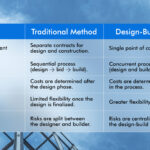Managing a construction project is a complex process, requiring coordination, precision, and expertise. This is where a skilled project manager(PM) becomes invaluable. Whether managing a residential, commercial, or industrial project, the project manager is responsible for ensuring the project runs smoothly, on time, within budget, and to the required standards.
At PROCON International, with its strong global presence and over a decade of experience in pioneering construction excellence, the Project Management Team plays a key role in the company’s success. They are renowned for their proactive problem-solving approach; addressing challenges before they arise ensures that quality and efficiency meet at top levels on all projects.
What Does a Project Manager Do for a Construction Company? Key Responsibilities of a Project Manager in Construction
1. Project Planning and Development
The first and foremost responsibility of a construction project manager is project planning. Before any construction can begin on the project site, PM collaborates with architects, engineers and other stakeholders to establish a comprehensive project plan. This includes setting timeframes, budgets and key deliverables. The project manager makes certain that all of the necessary resources such as materials and skilled labor are available when needed in order to achieve project objectives.
2. Budget and Cost Control
The budget of a construction project is always crucial and managing it well is a fundamental responsibility of a PM. The PM supervises the preparation of cost estimates, makes sure accurate financial records are kept and tries to prevent budget overruns. . They make adjustments as necessary by identifying cost-saving measures without compromising on quality.
For example, a residential housing project with a budget of $5 million. During the initial stages, the project manager notices a surge in material costs due to market fluctuations. To prevent budget overruns, the PM negotiates bulk-purchasing discounts with suppliers and identifies alternative materials that meet quality standards but are more cost-effective.
3. Time Management and Scheduling
Construction projects often involve tight deadlines, and managing these timelines is one of the most challenging aspects of a PM’s role. A project manager creates a detailed timeline that includes milestones, resource allocation and deadlines. They keep track of construction progress to make sure the project remains on schedule, and if necessary rearrange schedules.
4. Risk Management
Every construction project faces risks, whether it’s unexpected delays due to weather, labor shortages, or material price increases. A project manager’s job includes identifying potential risks early in the planning stage and developing strategies to mitigate them. The PM also monitors the site for any unforeseen issues that could hinder progress, proactively addressing these problems to minimize any negative impact on the project.
5. Team Coordination and Communication
A construction project involves a variety of teams, including architects, engineers, contractors, subcontractors, and laborers. The PM acts as the central point of communication, ensuring that all team members are on the same page regarding the project’s goals, timeline, and progress. Regular meetings, updates, and feedback ensure that the project is proceeding according to plan.
For example, a government office building project, the project manager arranges weekly progress meetings with architects, engineers, and contractors to synchronize on project milestones. In one such meeting, the contractors raised that a delay in material delivery could affect the program.
On hearing this, the PM immediately contacts the suppliers in order to hasten shipment and together with the engineers adjust the equipment layout, concentrating on the area unaffected by delay. By means of keeping channels for cooperation open and ensuring collaborative problem-solving, the project manager can avoid disruption.
6. Quality Control and Safety Management
Ensuring that construction work meets both legal standards and the quality expectations of the client is crucial. A PM is responsible for regular site inspections to check whether the work complies with these regulations or any other valid ones. In addition, safety management is a significant part of the duty. PM ensures that safety protocols are followed to prevent accidents on construction sites and injury to employees.
At PROCON International, the project management team enforces a strict quality control policy, ensuring that the final product meets high industry standards while maintaining a strong focus on safety.
7. Contract Management
Construction projects often involve multiple contractors, subcontractors, and vendors. The project manager is responsible for managing these contracts, ensuring that all parties deliver on their commitments. This includes monitoring performance, addressing any disputes, and ensuring that the terms of the contracts are met.
8. Client Liaison
The project manager serves as the primary contact for the client throughout the construction process. They provide regular updates, address any concerns, and ensure that the client’s expectations are met. The PM ensures that any changes to the project scope are properly managed and communicated to the client, maintaining a positive relationship throughout the project lifecycle.
9. Post-construction and Handover
Once the construction work is completed, the project manager coordinates the final inspection, ensuring that the project is delivered to the client according to the original specifications. The PM handles any final adjustments, manages the handover process, and ensures that all documentation, including warranties and maintenance schedules, is provided to the client.
Skills Required for a Construction Project Manager
Being an effective construction project manager requires a diverse skill set, including:
- Leadership and Decision-Making: The PM must lead a diverse team and make quick decisions, often in high-pressure situations.
- Problem-Solving: The ability to solve problems creatively and efficiently is crucial, especially when dealing with unexpected challenges.
- Organization and Multitasking: Managing several tasks at once is a key aspect of the role, from coordinating teams to overseeing financials.
- Communication: Strong communication skills are essential for maintaining effective communication with clients, contractors, and team members.
- Technical Knowledge: A sound understanding of construction processes, materials, and technology is vital for overseeing construction operations.
- Negotiation: Construction projects often require negotiations with contractors and suppliers to ensure favorable terms.
Conclusion
A project manager in a construction company plays a key role in ensuring the successful completion of construction projects. Their responsibilities range from planning and budgeting to risk management, team coordination, and client communication. By handling these tasks effectively, the project manager helps ensure that construction projects are completed on time, within budget, and to the highest quality standards.
Whether overseeing large-scale projects or smaller ventures, the project manager ensures that every aspect of the project is efficiently managed, ultimately delivering results that meet client expectations and industry standards.





